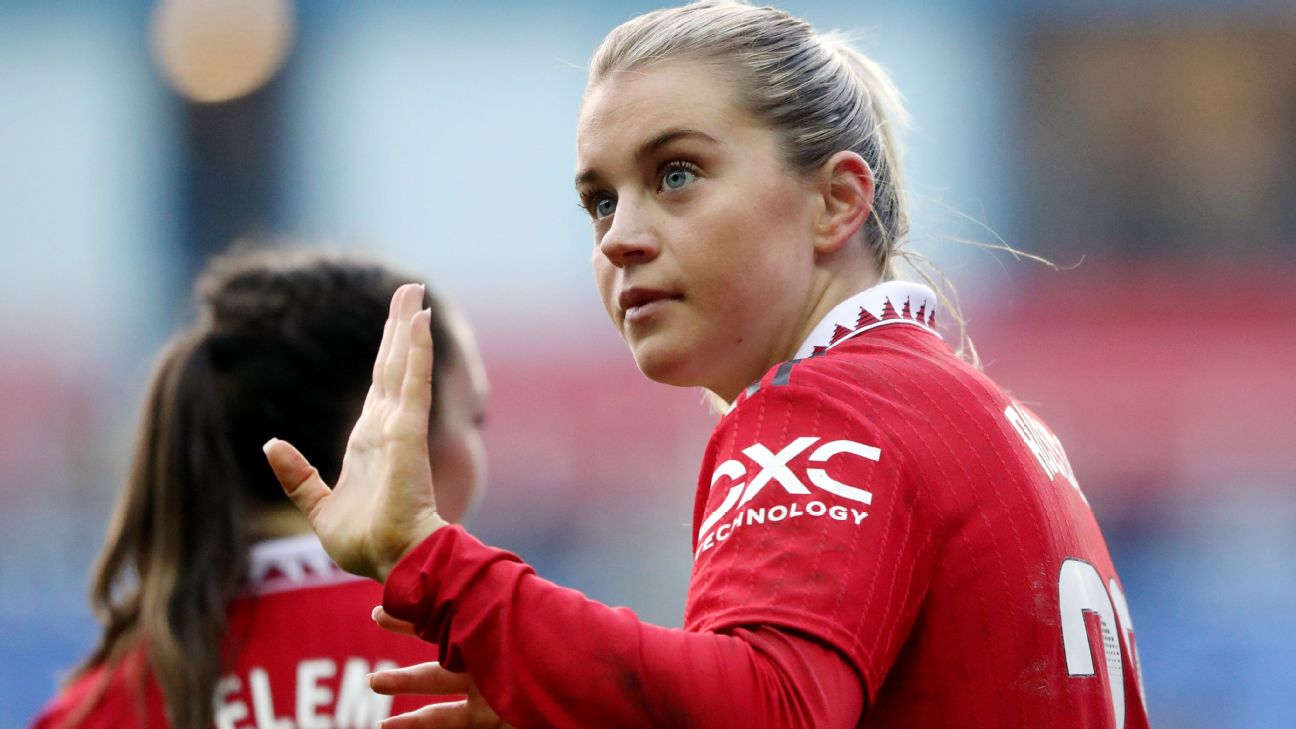Do Russo, McCabe bids hint at more deals between WSL’s biggest clubs?

In 2017, after much back and forth negotiation, Spain centre-back Mapi Leon moved from then-league champions Atletico Madrid to runners-up Barcelona. With a year still left on her contract with the Colchoneras, Barcelona were forced to pay their league rivals €50,000 to secure Leon’s services, making her the first paid women’s transfer between two Spanish clubs.
Yet outside of the habitual migration of players from France’s capital Paris to Lyon, moves from rival teams battling for the same domestic silverware remain a rarity in the women’s game. Although there are players across Europe who are now playing for rivals of their former clubs, they have often moved indirectly. Take for example Wolfsburg midfielder Jill Roord who, rather than moving directly from Bayern Munich to their Frauen-Bundesliga title rivals, spent two seasons at Arsenal in the Women’s Super League before returning to Germany.
It’s with this in mind that eyebrows were swiftly raised when the news broke last week that Chelsea had put in a bid to sign Arsenal’s left-sided defender/attacker Katie McCabe.
Although Chelsea had signed players from Arsenal before, and three of the first Blues’ team that lifted the WSL title in 2015 (midfielder Katie Chapman, defenders Gilly Flaherty and Niamh Fahey) had come directly from the Gunners, the proposition was quite a different one when they had made their respective moves across London. Even the one former Arsenal player in the current Chelsea squad, Lauren James, had come to Emma Hayes’ team following three seasons at Manchester United.
Less than 48 hours after the approach, Arsenal — having declared that McCabe wasn’t available — then sent the WSL bubble back into a frenzy with a late bid for Man United and England forward Alessia Russo. They weren’t just attempting to lure a player away from one of their title rivals, but sources told ESPN they were offering a world record amount to United for a player with just half a season left on her contract.
After that bid was rejected, Arsenal went back to United with a renewed offer as well, as reported by Molly Hudson, trying to make the deal a more palatable one by offering up one of their own attackers. Although sources told ESPN a deal was likely, United turned down what would have been a record transfer fee in women’s football and announced that Russo was “not for sale at any price.”
– Stream on ESPN+: LaLiga, Bundesliga, more (U.S.)
Although neither of the shock moves ended up happening in January, it feels like we may have seen another barrier or taboo in the WSL broken as clubs at the top of the table may feel emboldened to approach each other and attempt, with relatively vast sums of cash, to get them to part with their players. It’s highly possible we will see more of these approaches even if they are met with firm rejections, as the sudden increase in transfer fees could become more of a factor.
In making such a large approach to sign Russo, Arsenal have at least alerted the player of their interest and willingness to spend big to land her. If the England international decides not to pen a new deal in Manchester, a move to London may well be a little more enticing to the attacker. But much like the idea of teams in the top four attempting to steal players away from each other, this is a point to be considered ahead of the next transfer window.